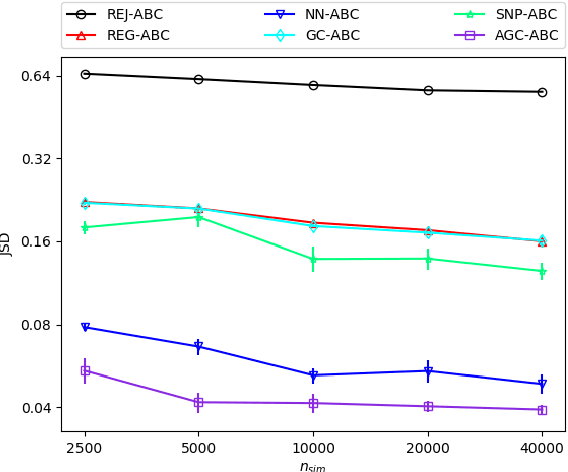Adaptive Gaussian Copula ABC
Paper and Code
Feb 27, 2019



Approximate Bayesian computation (ABC) is a set of techniques for Bayesian inference when the likelihood is intractable but sampling from the model is possible. This work presents a simple yet effective ABC algorithm based on the combination of two classical ABC approaches --- regression ABC and sequential ABC. The key idea is that rather than learning the posterior directly, we first target another auxiliary distribution that can be learned accurately by existing methods, through which we then subsequently learn the desired posterior with the help of a Gaussian copula. During this process, the complexity of the model changes adaptively according to the data at hand. Experiments on a synthetic dataset as well as three real-world inference tasks demonstrates that the proposed method is fast, accurate, and easy to use.
 Add to Chrome
Add to Chrome Add to Firefox
Add to Firefox Add to Edge
Add to Edge